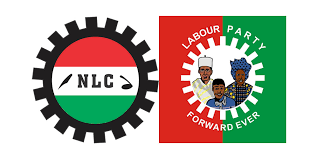BREAKING NEWS

MAY DAY PROTESTS: LABOUR DECRIES ECONOMIC HARDSHIP, SAYS ₦70,000 WAGE IS “USELESS”
As Nigeria observes the 2025 International Workers’ Day, the nationwide mood is one of frustration and discontent, with labour unions across the country rejecting the ₦70,000 minimum wage as grossly inadequate amid skyrocketing inflation and economic hardship.
The Nigeria Labour Congress (NLC) and the Trade Union Congress (TUC) have sounded a collective alarm, saying that Nigerian workers are enduring unprecedented hardship due to recent government policies, including the removal of fuel subsidies and the continuous devaluation of the naira.
From Bayelsa to Lagos, union leaders assert that workers are worse off now than ever before. According to Comrade Julius Laye, TUC Chairman in Bayelsa State, increased taxes, rising electricity tariffs, and poor healthcare access have rendered the wage raise meaningless.
“₦70,000 can’t even cover basic healthcare. Meanwhile, public officials fly abroad for treatment while the average worker suffers,” Laye told reporters.
Rivers State NLC Chairman, Alex Agwanwor, echoed these sentiments, stressing that inflation and high costs of goods have outpaced salary increases.
“Despite the raise, workers are struggling more than ever. The government must act fast,” he warned.
In Niger State, TUC Chairman Ibrahim Gana painted a bleak picture of the economic conditions facing workers.
“It feels like we’re not even earning. Salaries vanish the moment they’re paid—thanks to fuel, power, and food costs,” Gana said.
Union leaders laid the blame squarely on the Federal Government, particularly President Bola Tinubu’s administration. Many say his economic policies have deepened workers’ misery rather than alleviated it.
“We believed the promises of a ‘living wage,’ but what we have now is anything but that,” said Comrade Chigaemezu Nwigwe, NLC Chairman in Imo State.
In Oyo, NLC Chairman Comrade Kayode Martins said Nigerian workers have been pushed down the economic ladder.
“Our purchasing power is gone. Workers are no longer middle class—they’re now among the poorest compared to peers in neighbouring countries,” Martins said.
In Lagos, NLC Chairperson Funmi Sessi noted that prices have soared in virtually all sectors—housing, food, healthcare, education—without any matching economic relief.
“We are witnessing hardship across all fronts, and there’s no meaningful government intervention,” she lamented.
While Senate President Godswill Akpabio promised that the National Assembly would collaborate with the executive to improve workers’ welfare, labour leaders insist that mere promises are not enough.
They are calling for an urgent review of the National Minimum Wage Act and the implementation of broader economic reforms to relieve the burden on Nigerian workers.
“We need more than symbolic gestures. The economic reality demands urgent intervention,” said Comrade Igwe Chidi, TUC Chairman in Ebonyi State.
In Ogun State, TUC Chairman Akeem Lasisi concluded that despite last year’s approval of the ₦70,000 wage, there is “little to celebrate” given the current inflationary pressures.
"This represents a significant development in our ongoing coverage of current events."— Editorial Board









